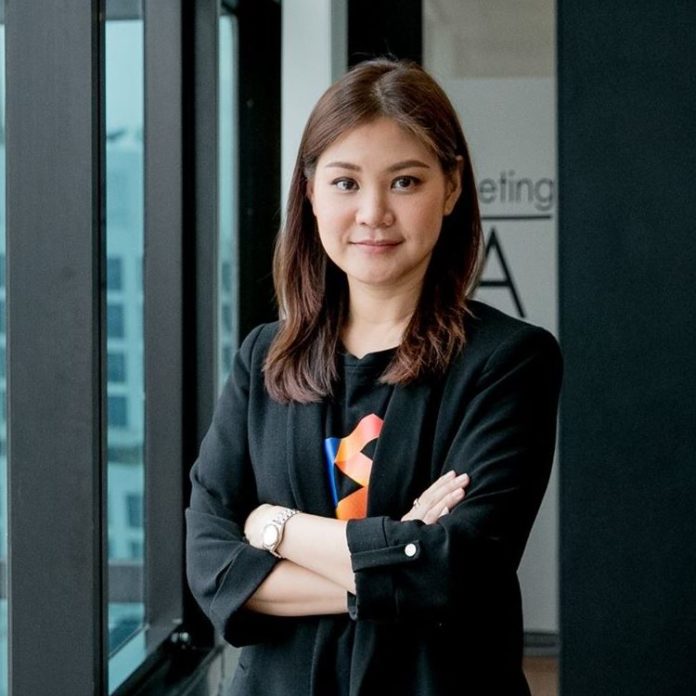Oranuch Lerdsuwankij, also known as ‘Mimee‘ is the brainchild behind Techsauce Global Summit, South East Asia’s largest tech conference. The event, now in its third year, takes place at Bangkok from the 19th to the 20th of June.
A youthful female entrepreneur and advocate of women in tech, Mimee always wanted to start her own business.
Before realising her dream to establish Thailand as a world-class tech hub, she worked in product marketing for Truemove, Atos Origin and Total Access Communication (DTAC).
Mimee speaks to Startupanz.com on the future of tech entrepreneurship in Thailand and the challenges ahead. Excepts from an interview:
Q. How do you see the future of tech startups in SE ASIA? Will it be strikingly different from the type of startups emerging in Silicon Valley?
MIMEE: The market and startup landscape in South East Asia is quite unique and very fragmented.
Each country has different local pain-points, cultures, and languages.
Startups that want to scale their business in South East Asia need to understand the local pain-points and should find out who the local partner is, in order to expand.
South East Asia is also a region rich in diversity, yet it faces social challenges.
Many countries in this region are considered developing countries. I expect to see more potential startups trying to solve social problems, for example:
– How to close the education gap.
– How to make financial and healthcare truly inclusive.
Q. Which are the three biggest emerging sectors for tech startups in SE ASIA, particularly Thailand?
MIMEE: Agriculture, healthcare, and food are Thailand’s core industries.
With technological solutions being applied to address social problems within the region, there remains great potential for tech startups in every country of the region to grow and deliver solutions to those problems.
Q. What are the key ingredients that make for a successful entrepreneur? What are the three most common reasons that startups fail in SE Asia?
MIMEE: Successful entrepreneurs are driven overall by their commitment to their key stakeholders; namely, their customers and their needs.
In addition to that, a dedicated approach towards their co-founders, partners, investors and employees are some of the key ingredients that make an entrepreneur successful.
In terms of the three most common reasons that startups fail in South East Asia:
-
For early-stage startups: they don’t understand the market enough and try to solve problems that do not exist.
-
For growth stage startups: If they want to raise series B/C, their product and solution should be able to scale across South East Asia. Otherwise, it is quite hard to attract investors.
-
How to differentiate their business and create barriers to entry to protect their business from big players, for example e-commerce and logistics which are a highly competitive market.
Q. Can you tell us a little bit about TechSauce 2019 and its origins?
MIMEE: Techsauce is an innovative technology and media company that first started in 2012.
Techsauce has become best known for hosting the largest tech conference in South East Asia, ‘Techsauce Global Summit’.
It is the collaborative link of global leaders in technology, startups, corporations, venture capitalists and investors to grow the tech industry together.
This year, the event will be bigger than ever with over 12 stages on various themes ranging from: Smart Cities, Travel Tech, Energy & Auto, Fintech, Food, Ag and Beverage Tech, Health Tech (including Weedtech), Entertainment (including Music, e-Sport, AR VR, Fashion), AI & Data, Blockchain, Startups, Venture Capital, Social Impact and Women in Tech.
For the previous three years, we have had the privilege to have world-renowned speakers such as David Brown, Kamran Elahian, Joseph Lubin, Justin Kan, Dan Kan, Brett King, Neal Cross, Pieter Kemps and Mike Peng at our Summit.
This year’s Techsauce Global Summit 2019 is expected to be twice the size of last year with over 20,000 attendees from across the globe.
We’ve added a fashion and music festival to complement the summit, so participants will enjoy a real cultural festival, and not just another tech conference.
Different communities such as artists, musicians, filmmakers, athletes, social entrepreneurs and LGBTQ will gather for a spectacle unlike any other.
Q. Is ‘failure’ a bad word in Thai culture or are the youth more willing to take risks and start businesses?
MIMEE: In short, thankfully no. Companies big and small are not looked down upon for failing in Thai culture.
Indeed, some companies create their own culture of “celebrating learning from failure”.












